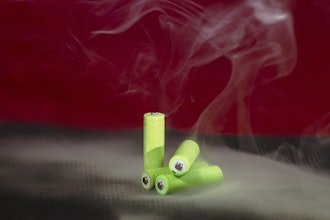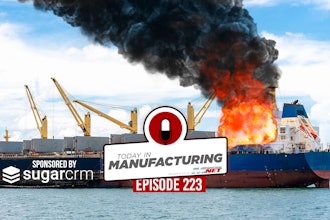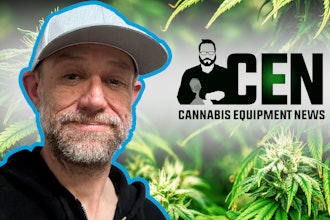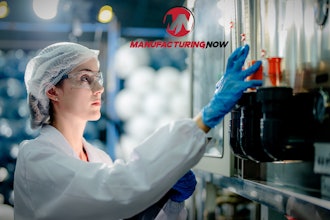Editor's Note: Download the audio version below and click here to subscribe to our newsletter.
Nohtal Partansky was recruited out of Georgia Tech to work at the NASA Jet Propulsion Laboratory (JPL). He was on the team that designed the Mars Oxygen In-Situ Resource Utilization Experiment (MOXIE), which sought to produce oxygen that astronauts could breathe on the red planet.
In his last year at JPL, Partansky co-founded Sorting Robotics. His first success came from building robots that could organize playing cards for Magic: The Gathering, a collectible card game. He sold the machine to some investors in 2019 and was looking for a new opportunity.
While working at the Y Combinator startup accelerator, Partansky wanted to find a bigger market than playing cards, and he saw cannabis as a "blue ocean market." He says that cannabis was neglected. As a result of its federal legalization status, many sophisticated operators weren't building automation for cannabis companies.
Partansky has long held a desire to helm his own company. In 2014, while still in grad school, he started a 3D printing company that saw some success but fizzled out. Still, he got the bug for building companies but wanted to get a "real" job under his belt after grad school.
Being a NASA engineer opens some doors for you. The experience gave him legitimacy, and potential partners didn't question his financial model because, as Partansky boasts, he's obviously better at math. However, sometimes his past played against him as people thought he was just an engineer who didn't know how to build products, deal with customers or run a business.
After surveying the cannabis landscape, Partansky designed Jiko, Sorting Robotics' flagship pre-roll infusion device that launched at the end of last year. Jiko uses a syringe to inject a column of cannabis concentrate down the center of the pre-roll; this includes distillates, sauce, batter, butter, live resin and fresh-press rosin, among other mediums. As the market continues to trend towards solventless, Partansky says that being able to infuse blunt and joints with rosin is a big problem for the industry, and Jiko is an excellent solution for that problem.
Jiko was built for co-packers and brands. The robot's wide range of capabilities gives co-packers flexibility. However, in some states, co-packing cannabis is illegal, so the machine is ideal for in-house manufacturing brands.
Typically, a single operator infusing 100 mg of concentrate into a pre-roll will average about 800 joints per hour, which works out to some 5,000 joints per day. Partansky has seen some operators hit 1,200 pre-rolls per hour with a sophisticated setup. Jiko should be cleaned daily to keep everything running smoothly, but outside of that, the machine requires little maintenance.
A few years ago, Partansky helped set up a manufacturing and co-packing plant in Oakland, California. He established a relationship with the company, and it became a real differentiator for Sorting Robotics as the company used the facility for R&D and to learn more about operating in the industry. He spent a year setting up the facility and developed a better understanding of what it is like to be a cannabis operator. He says the best way to know the customer is to be the customer.
He helped launch an in-house infused joint cannabis brand for the co-packer that helped him learn more about sales cycles and what it is like getting into the market. He learned how to best infuse a joint and what to infuse it with, which led to an opportunity to set a foundational layer throughout the industry about how infused pre-rolls are made. Many companies are still experimenting with infused pre-rolls, and Jiko's versatility can help make a better end product.
Still, the cannabis industry has been slow to adopt new technology. Many mature markets expanded without mainstream automation, so operators are slow to adopt new technology. New markets, however, are welcoming new automation out of the gate.
Partansky says much of the industry still relies on manual labor, and he sees many areas thirsty for automation. For example, most quality control is still performed by hand and could be replaced with computer vision. A lot of manufacturing processes are also done entirely by hand. Many companies are still making pre-rolls in knockboxes, and while Partansky says that it's not necessarily a bad idea, it's an inefficient way of doing business. Many concentrates are also made by hand and could be the next category Sorting looks to tackle with an automated solution.
The cannabis industry still has a lot of gaps both on the technology side and on the operator side. Still, Partansky is committed to creating a more sophisticated industry by providing robust technology.
Please make sure to like, subscribe and share the podcast. You could also help us out by giving the podcast a positive review. Finally, to email the podcast or suggest a potential guest, you can reach David Mantey at David @cannabisequipmentnews.com.






















